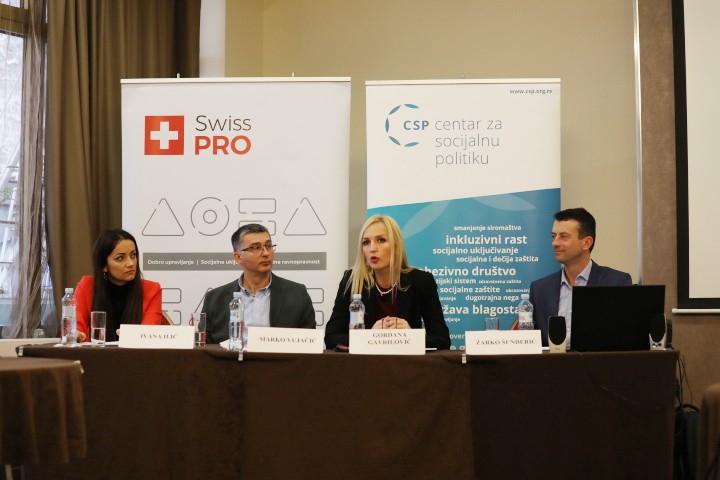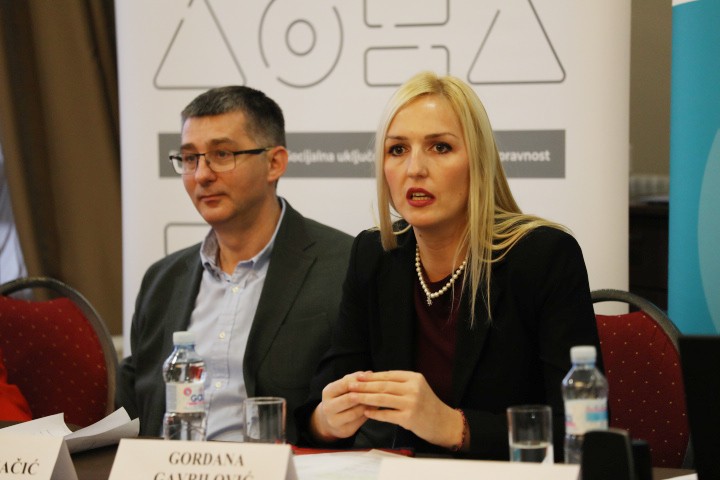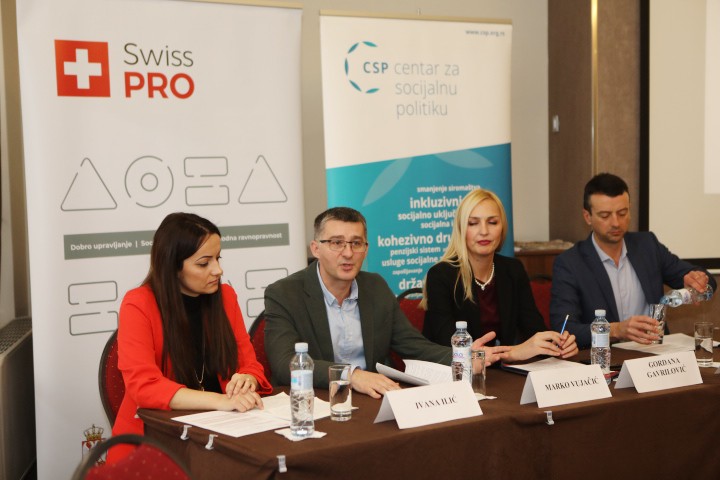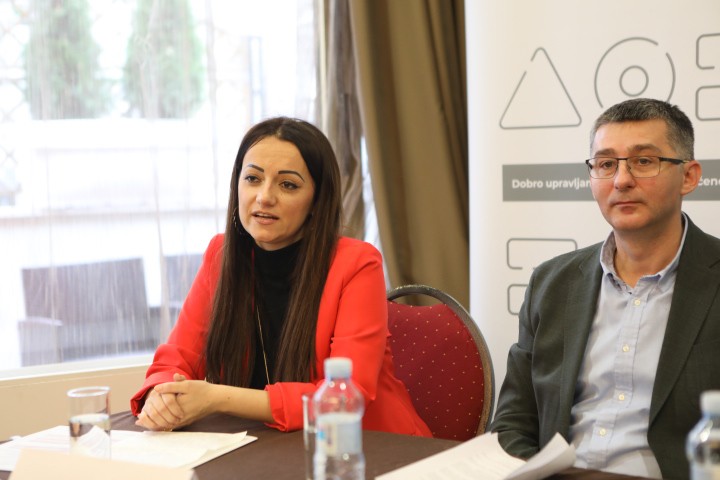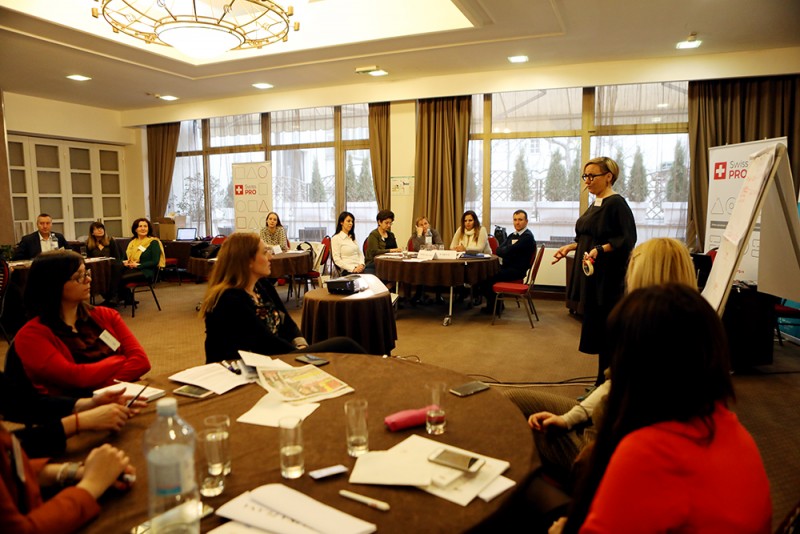News / Actualities
Capacity building of 31 local self-governments for the promotion of gender equality
-
Belgrade, 20 February 2020
The Swiss PRO Programme has launched an intervention aimed at improving the gender equality institutional frameworks and increasing the participation of women in decision-making processes at the local level. The first part of the intervention is related to the technical support in cooperation with the Center for Social Policy, while the second part is related to the establishment of women councillors’ networks. It will be followed by a call for proposals to award grants to local self-governments in order to enable them to implement some of the activities set out in the current gender equality action plan.
Gordana Gavrilović, Gender Equality Advisor to the Deputy Prime Minister and President of the Coordination Body for Gender Equality, pointed out the importance of strengthening the capacity of local self-governments to promote gender equality.
"There is a political will to improve the situation in the field of gender equality, to adopt institutional mechanisms, strategies and action plans, but none of these things will make a difference unless they are applied at the local level and that is why local self-governments need continuous support. Women constitute a majority in non-executive positions, but the Law on the Election of Members of Parliament and the Law on Local Elections will help women to have a voice in decision-making. The introduction of gender-responsive budgeting is also a challenge, because without money, it is not possible to implement all the measures," Gavrilović pointed out.
Marko Vujačić, Head of Programme, UNOPS Serbia, has pointed out that over the past 10 years, with the support of the Swiss government, UNOPS has been supporting gender equality initiatives, such as the establishment of local mechanisms and action plans, women's parliamentary groups and NGO projects.
"Gender equality is primarily a human rights and dignity issue, but its economic dimension should not be overlooked either, because we will only be able to seriously work on achieving economic prosperity if we use the potential that all people can give to the community. Many concrete things have been done which have contributed to the improvement of the status of women, but despite the fact that we have a positive trend, there is still a lot of work to do in this field," Vujačić said.
Raška is one of the municipalities in which basic strategic documents have been adopted, including the Local Action Plan for Gender Equality, which is revised on an annual basis.
"In addition to strategic documents, it is necessary to have the support of state institutions, such as the Coordination Body for Gender Equality, with the help of which an important project was implemented, whose results were translated into concrete measures to improve the position of women from rural areas," said Ivana Ilić, President of the Commission for the Promotion of Gender Equality in the municipality of Raška.
This event marked the beginning of a two-day training to improve gender equality mechanisms and policies at the local level, which will be attended by representatives of 31 local self-governments.
Representatives of the following municipalities participated in the first training: Babušnica, Bela Palanka, Bor, Crna Trava, Ćuprija, Golubac, Kladovo, Pirot, Raška, Smederevska Palanka, Surdulica, Topola, Tutin, Velika Plana, Veliko Gradište i Zaječar. At the beginning of March, the training will be held for representatives of the following municipalities: Arilje, Bogatić, Čajetina, Dimitrovgrad, Ljubovija, Loznica, Majdanpek, Mionica, Nova Varoš, Priboj, Prijepolje, Rača, Sjenica, Sokobanja i Vrnjačka Banja.
This training is mplemented within the Programme "Enhancing Good Governance and Social Inclusion for Municipal Development – Swiss PRO" supported by the Government of Switzerland in cooperation with the Government of Serbia, and implemented by the United Nations Office for Project Services (UNOPS) in partnership with the Standing Conference of towns and Municipalities (SCTM).





